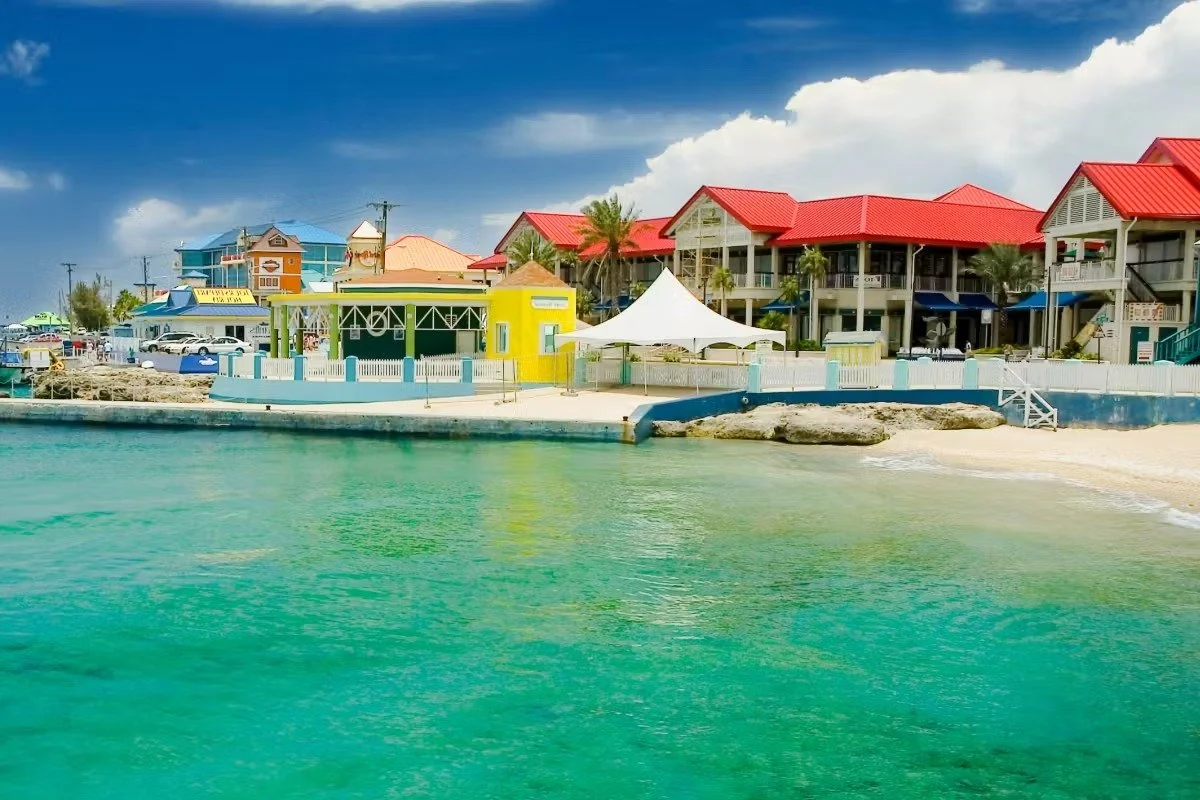The Top 10 Things to Take Your Travel Agency From Beginner to Pro
So you've decided to jump into the travel industry—sweet! Doesn’t matter if you're booking your first client or you've been at it for a few months, making that leap from beginner to professional travel agent can feel like a huge mountain to climb! But here's the good news: with the right moves, you can fast-track your success and build a business that not only pays the bills but also gives you the freedom to work on your own terms!
The travel industry is booming, and there's never been a better time to become a travel agent. But let's be real—just having a passion for travel isn't enough. You need strategy, systems, and a solid plan to stand out from the crowd. This guide breaks down the ten most important steps that'll help you grow your agency like a pro! Whether you're working from home or building a full-scale operation, these tips will help you attract more clients, earn higher commissions, and become the go-to expert in your corner of the travel world!
Ready to transform your side hustle into a thriving travel business? Let’s do this!
1. Pick Your Niche and Own It
Here's the thing about trying to sell everything to everyone: it doesn't work. The most successful travel agents specialize. Think about it—when you need heart surgery, you don't go to a general doctor. You want a specialist. Same goes for travel.
Choosing a niche helps you become the expert in one specific area, which makes marketing way easier and attracts clients who are willing to pay for your expertise. Your niche could be destination-focused (like Italy or Hawaii), experience-based (luxury travel, adventure tourism, destination weddings), or demographic-specific (families, solo travelers, LGBTQ+ travelers).
Don't stress about picking the "perfect" niche right away. Start with what you love and what you know. If you're obsessed with Disney, lean into that. If you spent your honeymoon on a cruise and loved it, consider specializing in cruises. The key is to pick something you're genuinely passionate about because that enthusiasm will shine through when you're talking to clients.
Start with one to three niches max and really dive deep into learning everything about them. As your business grows, you can always expand. But trying to be an expert on everything right out of the gate is a recipe for burnout and mediocre service.
2. Join a Host Agency for Support and Higher Commissions
Unless you have thousands of dollars to invest upfront, starting as an independent travel agent through a host agency is your best bet. A host agency basically gives you all the tools you need to run your business without the massive startup costs.
Here's what a good host agency provides: established supplier relationships, higher commission rates (because they have buying power), booking platforms and technology, marketing materials, errors and omissions insurance, IATA and CLIA credentials right from the start, training and ongoing education, and a community of other agents to learn from.
The typical commission split ranges from 70-90%, meaning you keep that percentage and the host takes the rest. It might seem like you're giving up some earnings, but remember—you're getting access to higher commission rates from suppliers that you wouldn't be able to negotiate on your own.
When choosing a host agency, ask about their commission structure, monthly fees (some charge them, some don't), training programs, supplier partnerships, and the level of support they offer. Don't just go with the first one you find. Do your research on sites like Host Agency Reviews to compare different options!
3. Invest in Education and Training
Nobody expects you to know everything on day one, but clients do expect you to be knowledgeable. The good news? You don't need a college degree to become a travel agent. But that doesn't mean you should skip training altogether.
Consider getting certified through programs like the Travel Agent Proficiency (TAP) test, Certified Travel Associate (CTA), or certifications from ASTA or CLIA. These show potential clients you're serious about what you do and give you credibility.
Beyond formal certifications, take advantage of all the free and low-cost training available. Most suppliers offer their own training programs. Cruise lines have extensive online courses. Hotel chains provide destination-specific education. Your host agency should also offer ongoing training webinars and workshops.
Attend industry conferences, join webinars, participate in familiarization (FAM) trips when you can, and never stop learning. The travel industry changes constantly, so staying on top of trends, new destinations, and supplier updates is crucial!
4. Build Systems That Scale Your Business
If you want to move from beginner to pro, you need systems. Systems are what separate agents who are always scrambling from agents who have smooth, profitable operations.
Focus on building four key systems. First, your marketing system—how will you attract new clients who don't already know you? Social media, email campaigns, SEO-optimized blog content, and networking all play a role here. Second, your sales system—what's your process for turning inquiries into bookings? This includes consultations, follow-up emails, proposal templates, and closing techniques.
Third, your service system—how do you deliver exceptional experiences from booking through post-trip follow-up? This includes itinerary builders, client communication protocols, and relationship nurturing strategies. Finally, your operational system—how do you handle invoicing, commission tracking, document storage, and workflow automation?
Use technology to your advantage. Invest in a good CRM (customer relationship management) system to track client preferences and automate follow-ups. Use itinerary-building software to create polished, professional trip plans. Set up automated email sequences for pre-trip reminders and post-trip thank-yous.
The time you spend setting up these systems now will save you countless hours later and allow you to serve more clients without burning out.
5. Master Social Media and Online Presence
Like it or not, if you're not online, you basically don't exist. Social media is hands down the most powerful (and affordable) way to market your travel business.
Start with two to three platforms where your ideal clients hang out. For most travel agents, that's Facebook and Instagram. TikTok is also blowing up for travel content if you're comfortable with short-form video.
Post consistently—aim for at least three to four times per week. Share beautiful destination photos, travel tips, client testimonials, behind-the-scenes looks at your process, and hot deals. Use Instagram Stories and Reels to show personality and connect with your audience on a more personal level.
Don't just post and ghost. Engage with your followers. Reply to comments and DMs promptly. Join travel-focused Facebook groups and offer helpful advice (without being salesy). Share user-generated content from your clients' trips (with permission).
And here's a big one: optimize your website for search engines. Start a blog where you share destination guides, packing tips, and travel planning advice. This helps you show up in Google searches when people are looking for travel help. Use keywords naturally throughout your content, but don't stuff them in awkwardly—Google's smart enough to catch that.
6. Build Strong Supplier Relationships
Your relationships with travel suppliers—cruise lines, hotels, tour operators, airlines—can make or break your business. Strong supplier partnerships mean better rates for your clients, exclusive perks, and faster problem-solving when issues pop up.
Attend supplier events and trade shows whenever possible. Reach out to Business Development Managers (BDMs) at the companies you work with most. These are the people who can hook you up with exclusive offers, help with last-minute requests, and resolve booking issues quickly.
Concentrate your bookings with a handful of preferred suppliers rather than spreading your business too thin. This increases your sales volume with them, which can unlock higher commission tiers and VIP status.
Ask about co-op marketing opportunities where suppliers will help fund your marketing efforts. Many cruise lines and hotel chains offer marketing dollars to agents who promote their products.
7. Develop a Smart Pricing Strategy
Figuring out how to price your services can be tricky, but it's essential for profitability. Many beginners rely solely on commissions, but smart agents also charge planning fees.
Planning fees compensate you for your time and expertise, especially for complex itineraries that require extensive research and coordination. Common fee structures include flat planning fees (like $150-500 per trip depending on complexity), hourly rates ($50-150 per hour), or percentage-based fees (10-15% of the trip cost).
Be upfront about your fees from the very beginning. Don't surprise clients with charges they weren't expecting. Explain the value you provide—the hours of research, exclusive perks you can secure, 24/7 support during their trip, and the peace of mind that comes with having an expert in their corner.
Consider offering tiered service packages (bronze, silver, gold) at different price points. This gives clients options and makes it easier for them to say yes to something that fits their budget while still allowing you to upsell.
8. Focus on Customer Service and Client Retention
Here's a stat that'll blow your mind: getting a new client costs five times more than keeping an existing one. That's why the pros focus just as much on retention as they do on acquisition.
Deliver exceptional service at every touchpoint. Be responsive—reply to emails and calls within 24 hours (ideally faster). Go the extra mile to secure room upgrades, special amenities, or restaurant reservations that'll make your clients feel like VIPs.
Stay in touch even when they're not booking travel. Send birthday greetings, anniversary notes, and holiday cards. Share relevant travel news and deals. Check in a few months after their trip to see if they're ready to plan the next adventure.
Create a loyalty program that rewards repeat clients with perks like waived planning fees, exclusive discounts, or priority booking during busy seasons. Make your best clients feel valued and they'll not only come back—they'll refer their friends and family.
Handle complaints with grace. Things will go wrong sometimes—it's just the nature of travel. When issues arise, stay calm, empathize with your client's frustration, and work quickly to find solutions. How you handle problems often matters more than the problems themselves.
9. Network Like Your Business Depends on It (Because It Does)
Networking isn't just about collecting business cards at stuffy events. It's about building genuine relationships with people who can help grow your business.
Connect with other travel agents through online communities, Facebook groups, and your host agency's network. These people become your support system, mentors, and sometimes even referral partners when a client's request falls outside your niche.
Join local business networking groups like BNI or your Chamber of Commerce. Attend networking events and don't be shy about telling people what you do. Have your "elevator pitch" ready—a 30-second explanation of your business and who you serve.
Partner with complementary businesses. Wedding planners, event coordinators, corporate HR departments, and even real estate agents can all become referral sources if you build those relationships.
Join travel industry associations like ASTA (American Society of Travel Advisors) or CLIA (Cruise Lines International Association). Membership gives you credibility, networking opportunities, and access to resources and training.
10. Track Your Numbers and Keep Learning
You can't improve what you don't measure. Successful travel agents track their key performance indicators (KPIs) religiously.
Monitor metrics like: total sales volume, commission earned, average booking value, client acquisition cost, conversion rate (how many inquiries turn into bookings), client retention rate, and return on investment for marketing efforts.
Use this data to make informed decisions about where to focus your energy. If Instagram is driving more bookings than Facebook, double down on Instagram. If luxury travelers spend three times more than budget-conscious clients, adjust your marketing to attract more high-value customers!
Set goals and review them quarterly. Where do you want your business to be in six months? A year? Five years? Having clear targets gives you something to work toward and helps you stay motivated when things get tough.
Finally, stay curious and keep learning. The agents who thrive are the ones who constantly evolve, adapt to industry changes, and look for ways to improve their skills and service. Attend webinars, read industry publications, take advanced certifications, and never stop asking questions!
Common Mistakes to Avoid
As you're building your business, watch out for these rookie mistakes that can seriously slow your growth.
Don't expect to get rich quick. Building a sustainable travel business takes time—usually at least a year or two before you're seeing consistent income. Be patient and stay focused on the long game.
Don't skip the education and training. Some new agents think they can wing it, but that approach usually leads to unhappy clients and lost bookings. Invest in your knowledge from day one.
Don't try to sell everything to everyone. As we talked about earlier, niching down makes you more marketable and profitable. Trying to be a generalist in today's market is a losing strategy.
Don't neglect marketing. Your friends and family won't sustain your business forever. You need a consistent marketing strategy to keep new clients coming in.
Don't ignore technology and automation. Manual processes waste time and increase the chance of errors. Use the tools available to streamline your operations.
Don't forget to ask for reviews and referrals. Your happy clients are your best marketing tool, but they won't think to recommend you unless you ask!
Frequently Asked Questions
Do I need a degree to become a travel agent?
Nope! You don't need a college degree to become a travel agent. While a degree in business, hospitality, or tourism can be helpful, it's definitely not required. Most successful agents come from all kinds of backgrounds. What matters more is getting proper training through certification programs, your host agency, and supplier education courses.
How long does it take to become successful as a travel agent?
It varies, but most agents take one to three years to build a sustainable, profitable business. You can start booking travel right away, but building a strong client base and consistent income takes time. Full-time agents who work at it consistently typically earn between $44,000-$79,000 per year after a few years in the business, with top performers earning six figures or more.
How much does it cost to start a travel agency?
Starting costs are relatively low if you join a host agency. Most host agencies charge monthly fees ranging from $0-$100, plus you might want to budget for business cards, a website, and marketing materials. Total startup costs can be as low as $500-$2,000, making it one of the most affordable businesses to launch.
Do travel agents still make money in 2025?
Absolutely! Despite what you might have heard, travel agents are thriving. People still value expert advice, personalized service, and the peace of mind that comes with having a professional handle their trip details. With complex travel rules, endless options online, and the desire for unique experiences, travel agents are more valuable than ever.
What's the difference between a host agency and working independently?
A host agency provides infrastructure, support, training, and supplier relationships in exchange for a commission split (typically 70-90% going to you). Working completely independently means you keep 100% of commissions but have to handle all credentials, supplier relationships, insurance, and business operations yourself—plus you'll likely earn lower commission rates from suppliers.
How do travel agents get paid?
Travel agents earn commission from suppliers (hotels, cruise lines, tour operators, airlines) for bookings they make, typically 10-20% of the total trip cost. Many agents also charge planning fees to clients for their time and expertise, ranging from $150-$500+ depending on trip complexity. The more you book, the more you earn.
What skills do I need to be successful?
The most important skills are strong communication, attention to detail, organization, problem-solving, customer service, and sales ability. You also need to be comfortable with technology, have patience when dealing with challenges, and genuinely love helping people plan amazing trips.
Should I specialize in one type of travel or sell everything?
Specializing (niching) is almost always the smarter move, especially when you're starting out. It makes marketing easier, helps you become a true expert, and attracts clients willing to pay for specialized knowledge. Start with one to three niches, master them, and then expand if you want to.
Can I be a travel agent part-time?
Yes! Many successful agents start part-time while keeping their day job. The flexibility is one of the best perks of this career. Just know that part-time agents typically earn less (average around $20,000-$30,000 annually) compared to full-time agents. But it's a great way to test the waters and build your business gradually.
What's the best way to get my first clients?
Start with your warm market—friends, family, coworkers, and social media connections. Let everyone know about your new business. Offer to help plan their next trip at a discounted rate or with extra perks to get testimonials and experience. Post consistently on social media sharing travel tips and destination info. Join local networking groups and don't be shy about telling people what you do!
Wrapping It All Up
Taking your travel agency from beginner to pro doesn't happen overnight, but it's absolutely doable if you follow a strategic plan. Focus on these ten key areas—choosing your niche, joining a host agency, investing in education, building scalable systems, mastering online marketing, developing supplier relationships, pricing strategically, delivering exceptional customer service, networking consistently, and tracking your progress.
Remember, the most successful travel agents aren't necessarily the ones who've been doing it the longest. They're the ones who are willing to put in the work, stay consistent, learn from mistakes, and constantly look for ways to improve!
The travel industry offers incredible opportunities for people who are willing to hustle! You get to help people create lifelong memories, work from anywhere, set your own schedule, and earn income that scales with your effort. What's not to love?
Start implementing these strategies today. You don't have to do everything at once—pick two or three areas to focus on first, master those, and then move on to the next. Before you know it, you'll be running a professional, profitable travel business that gives you the freedom and income you've been dreaming of!
Your journey from beginner to pro starts now. Let's make it happen here at MainStreet Travel! We offer amazing training and ongoing support! If you’re just starting off we have a Free Membership and a Travel Plus Membership with access to our CRM for only $99!













